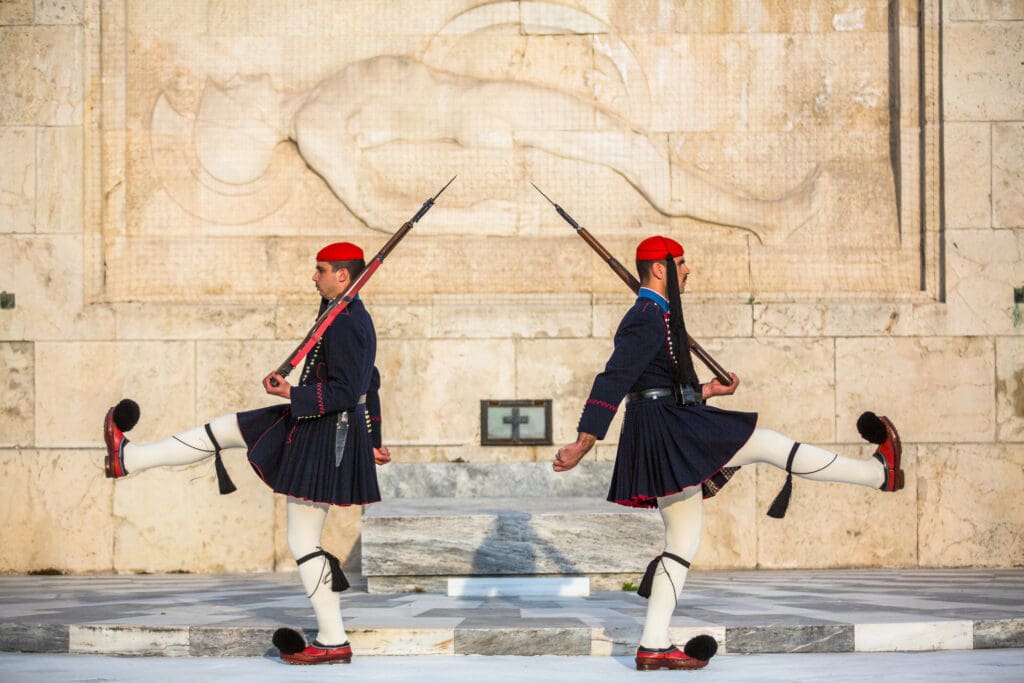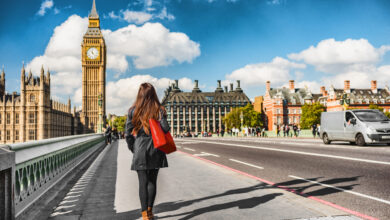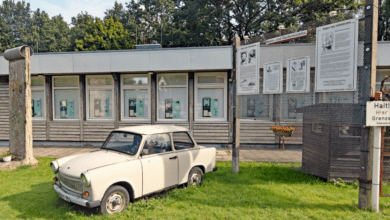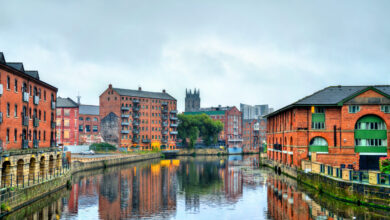Ceremonial Guards: Their Role is More Than Just Tradition

Why Respecting Military Guards Matters Beyond the Ceremony
A Moment of Realization at Buckingham Palace
I remember my first visit to London, eagerly waiting to see the famous Changing of the Guard at Buckingham Palace. It was everything I expected—the precision, the discipline, the sheer spectacle of it all. But what struck me more was an incident involving a tourist who tried to make a joke out of one of the guards, standing just inches from his face, pulling faces, and laughing while his friend snapped pictures.
The guard never flinched, never reacted, but suddenly, with a sharp stomp of his boot, he reasserted his presence. The tourist jumped back, startled. It was a powerful reminder that these guards were not there for our entertainment; they were real soldiers with real responsibilities.
More Than a Tradition: The Reality of Ceremonial Guards
There is a common misconception that ceremonial military guards, whether at Buckingham Palace, the Tower of London, or in front of government buildings in Athens, are simply there as a tradition, relics of the past who exist only for tourists to admire and photograph.
However, this couldn’t be further from the truth. These individuals have a duty to protect the institutions and leaders of their nations. In many cases, they are part of an elite military division, trained to act in the event of a security threat. Yet, tourists often fail to recognize this, treating them as statues or, worse, as props for social media pictures.
The Evzones: Guardians of Greece’s History and Security
One of the most well-known examples of ceremonial military guards is the Evzones of Greece, stationed in front of the Hellenic Parliament. With their iconic uniforms and slow, deliberate movements, they stand as symbols of national pride and security.
Their movements may be theatrical, but their role is very real. These men are part of an elite unit and undergo rigorous training before being chosen for this duty. They are not performers—they are guardians of national heritage and security.
A Personal Encounter in Athens: The Subtle Reminder
A few years ago, while in Athens, I had an encounter that brought this reality into focus. Watching the changing of the guard in Syntagma Square, I decided to get a closer shot. Without thinking, I stepped slightly past the barrier, eager to get the perfect angle. It was only a few inches, but within seconds, the guard nearest to me shifted his stance slightly, subtly reinforcing the boundary.
No words, no confrontation—just a quiet assertion that I had overstepped. I immediately backed off, feeling embarrassed that I had ignored the space and respect these soldiers deserved. It was a small moment, but one that left a lasting impression.
Disrespecting Military Personnel Can Have Consequences
This respect isn’t only about tradition—it’s also about safety. Across the world, from Uganda to Turkey, military installations and personnel are strictly protected, and photographing them can lead to serious consequences. Tourists often make the mistake of assuming that all public spaces are fair game for pictures, only to find themselves in legal trouble.
In 2019, a French tourist in Greece was detained for taking photos near a restricted military area, unaware of the local laws. In some countries, such as Uganda, photographing anything remotely military-related is outright illegal and can result in immediate arrest.
Security Personnel Are Not There for Show
The same principle applies to security personnel stationed at embassies, government buildings, and national landmarks. In Washington, D.C., the armed officers outside the White House are not for show.
In Paris, the soldiers patrolling the Eiffel Tower are not there to enhance a tourist’s Instagram photo. These are real military personnel tasked with maintaining security, and their presence is a response to real threats.
A Shift in Perspective: Honoring Their Role
Too often, tourists forget that these men and women are performing an essential duty. Their discipline, their stoic expressions, and their rigid postures may seem theatrical to outsiders, but in reality, they are highly trained professionals standing ready to respond to threats. Treating them as props or disrespecting their space diminishes the importance of their work.
It is vital to shift our perspective. Rather than seeing ceremonial guards as tourist attractions, we should recognize them as symbols of national strength and security. They are history, discipline, and duty embodied in a single figure. They stand for something far greater than a momentary spectacle.
A Final Reflection on Military Ceremonies
During my travels, I have come to see these guards not as distant figures but as representatives of the institutions they protect. Whether it’s the unflinching stare of a Queen’s Guard at Buckingham Palace or the rhythmic precision of an Evzone in Athens, their presence is a reminder that some traditions serve a far greater purpose than we realize. They are not just standing there. They are watching, waiting, and ready.
Don’t Let Trip Surprises Cost You
Did you know medical emergencies abroad can cost thousands, and flight cancellations leave travelers stranded?
✅ Compare travel insurance plans in 30 seconds and get a free quote now!
👉 Get a Quote with Squaremouth



